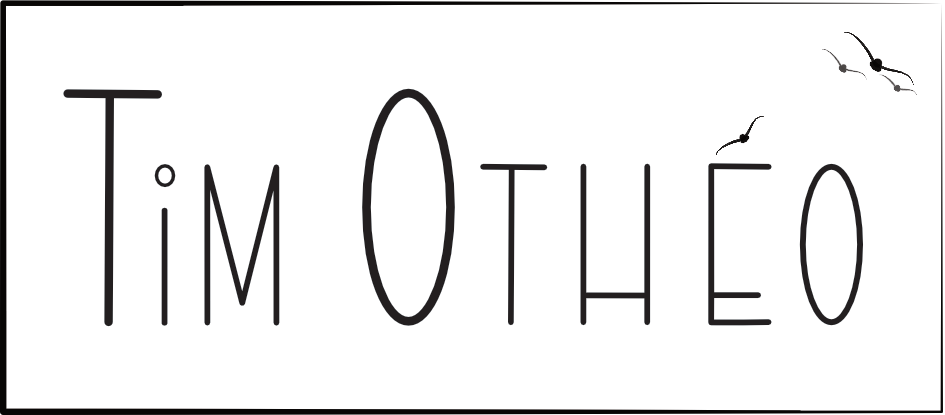A canvas is an illusive object. While we look at this, a flat surface usually covered in paint, we are engaging with it, allowing it to draw us into new worlds. Ironically, that same object stands in our way, should we ever try to enter these new worlds by going beyond its physical barrier: Try slicing it open and all you’ll likely see is a wooden board (and an emerging deep void inside your wallet).
Now, after centuries of art history, our modern gates to new worlds still remain flat. The images may have learnt to move, but they still do so within two dimensions.
Today, I fell in love with a screen.
She made me see things within myself that I had long before locked in a secret drawer. She accepts me with all my emotions and endures me in an agonizing but immensely passionate relationship – which ended abruptly and surprisingly. After exactly sixty-nine minutes.
Behind the Screen(s)
Am I seriously suggesting that I emotionally and intimately engaged with my Full HD, 27 inch LCD screen with a 60Hz refresh rate? Certainly not. But just like any lover trapped in a circumstance of unrequited love, you cling to the faintest straw with hope being the only thing keeping you from insanity. And 9 Songs by Michael Winterbottom left me with feelings that rendered me a such fool.
The reason for my need of a transitional object is that for those sixty-nine minutes I have been allowed to glimpse into fragmented episodes of Matt’s (Kieran O’Brien) and Lisa’s (Margo Stilley) scarce conversations and their manifold ways of making love during their short relationship. But here’s the thing: Lisa is not Lisa.
Lisa is Sara, Fabienne, Svenja, Julia…yes, above all: Julia!
With every on-screen glimpse of how the morning sunlight caresses Lisa’s skin and shadows playfully dance among the shape of her androgynous body, I have returned to my fateful summer of 2016. Beyond those 2.073.600 illuminated pixels I am looking at, I am back with Julia.
If I have ever loved, I loved Julia.

“Fuck me”, I hear her softly spoken words through the loudspeakers, almost a whisper. I am incredulous! As with each and every moment of intimacy we shared, I felt both the unspeakable gratitude for being this close to this truly terrific woman and the terror to hear her say what to me was obvious and, sadly, inevitable. For I knew the frailty of her commitment.
Julia / Lisa are women that you always feel alone with. As with the two of them and, cynically spoken, as with any physical object, the mere innocent proclamation of the wish for commitment could provoke the heartbreaking honesty of a shattering silence. Like an invisible barrier, you may sometimes just bump your nose. Though chances are, you’d rather collide painfully with its flat surface. But the fool in love I have become in course of these sixty-nine minutes, I had lost all intellectual capacity to understand that. I was emotionally begging to be let in.
Denouement
If you feel confused now, then you feel no different than I felt. Michael Winterbottom’s film may provide very little information about the relationship between Lisa and Matt. But somehow he manages to establish their dynamic so clearly, that I was quite surprised how easily I projected my own expreiences from previous relationships with rather emotionally unavailable but still stupendous women into the narrative.
But sure, I was occasionally hoping for a little more insight into their minds and their relationship just as many critics have noted. This was, however, the general idea behind the script: “It was sort of an experiment to see whether you could convey what it’s like being in love by watching people together, as opposed to creating a narrative. […] If you take a very, very simple premise: Two people in bed making love. If you film that closely enough and honestly enough with enough detail, maybe you could capture something of the atmosphere […] of being in love, without really seeing much beyond that.”[1]Interview with Michael Winterbottom, included on the DVD version of the film.
This is where, for me, the magic started: Once I realized a few minutes into the film that there is not much more information I will get about those two, I was free. I began seeing the little spontaneous details, like Matt’s dumb-happy face after his orgasm and how he was watching Lisa while she was preparing coffee nakedly. I remembered the sweet awe and the innocent delight of watching someone I have deeply fallen for. I recalled those incredulous thoughts that passed through my mind back then: “She likes me. She really likes me! Such a woman. But does she. Yeah, I think so. She just looked at you and smiled. She really smiled at me!..” and I had to tell myself to come back to the film in fear of missing out any of those beautiful, intimate and tiny details.
Sex as a Narrative
Such a painful and deeply human message was conveyed in a sexually explicit scene without any dialogue. I was deeply convinced that for decades now, filmmakers have not allowed themselves to use sexuality in film to tell simple but powerful aspects of humanity. While I was watching this scene, a saw a whole horizon emerging in front of me!
And so I am sitting in front of my screen. Later, I would hear Lisa announce to Matt (me) that she is going back to the states. Why? I should have seen it coming! Now that Lisa is gone, all that I have left is the sweet desire and the painful realization that I couldn’t keep her from leaving.
All I have is my memories of that summer. And those sixty-nine minutes to realize how much I loved her. Julia.
References
| ↑1 | Interview with Michael Winterbottom, included on the DVD version of the film. |
|---|
